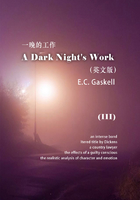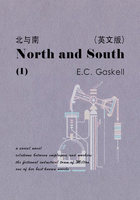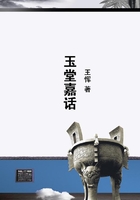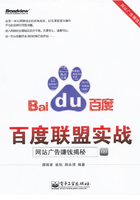MONKEY was so pleased with his new name that he skipped up and down in front of the Patriarch, bowing to express his gratitude. Subodhi then ordered his pupils to take Monkey to the outer rooms and teach him how to sprinkle and dust, answer properly when spoken to, how to come in, go out, and go round. Then he bowed to his fellow-pupils and went out into the corridor, where he made himself a sleeping place. Early next morning he and the others practised the correct mode of speech and bearing, studied the Scriptures, discussed doctrine, practised writing, burnt incense. And in this same way he passed day after day, spending his leisure in sweeping the floor, hoeing the garden, growing flowers and tending trees, getting firewood and lighting the fire, drawing water and carrying it in buckets. Everything he needed was provided for him. And so he lived in the cave, while time slipped by, for six or seven years. One day the Patriarch, seated in state, summoned all his pupils and began a lecture on the Great Way. Monkey was so delighted by what he heard that he tweaked his ears and rubbed his cheeks; his brow flowered and his eyes laughed. He could not stop his hands from dancing, his feet from stamping. Suddenly the Patriarch caught sight of him and shouted, 'What is the use of your being here if, instead of listening to my lecture, you jump and dance like a maniac?' 'I am listening with all my might,' said Monkey. 'But you were saying such wonderful things that I could not contain myself for joy. That is why I may, for all I know, have been hopping and jumping. Don't be angry with me.' 'So you recognize the profundity of what I am saying?' said the Patriarch. 'How long, pray, have you been in the cave?' 'It may seem rather silly,' said Monkey, 'but really I don't know how long. All I can remember is that when I was sent to get firewood, I went up the mountain behind the cave, and there I found a whole slope covered with peach-trees. I have eaten my fill of those peaches seven times.' 'It is called the Hill of Bright Peach Blossom,' said the Patriarch. 'If you have eaten there seven times, I suppose you have been here seven years. What sort of wisdom are you now hoping to learn from me?' 'I leave that to you,' said Monkey. 'Any sort of wisdom-it's all one to me.'
'There are three hundred and sixty schools of wisdom,' said the Patriarch, 'and all of them lead to Self-attainment. Which school do you want to study?' 'Just as you think best,' said Monkey. 'I am all attention.' 'Well, how about Art?' said the Patriarch. 'Would you like me to teach you that?' 'What sort of wisdom is that?' asked Monkey. 'You would be able to summon fairies and ride the Phoenix,' said the Patriarch, 'divine by shuffling the yarrow-stalks and know how to avoid disaster and pursue good fortune.' 'But should I live forever?' asked Monkey. 'Certainly not,' said the Patriarch. 'Then that's no good to me,' said Monkey. 'How about natural philosophy?' said the Patriarch. 'What is that about?' asked Monkey. 'It means the teaching of Confucius,' said the Patriarch, 'and of Buddha and Lao Tzu, of the Dualists and Mo Tzu and the Doctors of Medicine; reading scriptures, saying prayers, learning how to have adepts and sages at your beck and call.' 'But should I live forever?' asked Monkey. 'If that's what you are thinking about,' said the Patriarch, 'I am afraid philosophy is no better than a prop in the wall.' 'Master,' said Monkey, 'I am a plain, simple man, and I don't understand that sort of patter. What do you mean by a prop in the wall?' 'When men are building a room,' said the Patriarch, 'and want it to stand firm, they put a pillar to prop up the walls. But one day the roof falls in and the pillar rots.' 'That doesn't sound much like long life,' said Monkey. 'I'm not going to learn philosophy!' 'How about Quietism?' asked the Patriarch. 'What does that consist of?' asked Monkey. 'Low diet,' said the Patriarch, 'inactivity, meditation, restraint of word and deed, yoga practised prostrate or standing.' 'But should I live forever?' asked Monkey. 'The results of Quietism,' said the Patriarch, 'are no better than unbaked clay in the kiln.' 'You've got a very poor memory,' said Monkey. 'Didn't I tell you just now that I don't understand that sort of patter? What do you mean by unbaked clay in the kiln?' 'The bricks and tiles,' said the Patriarch, 'may be waiting, all shaped and ready, in the kiln; but if they have not yet been fired, there will come a day when heavy rain falls and they are washed away.' 'That does not promise well for the future,' said Monkey I don't think I'll bother about Quietism.'
'You might try exercises,' said the Patriarch. 'What do you mean by that,' asked Monkey. 'Various forms of activity,' said the Patriarch, 'such as the exercises called "Gathering the Yin and patching the Yang," "Drawing the Bow and Treading the Catapult," "Rubbing the Navel to pass breath." Then there are alchemical practices such as the Magical Explosion, Burning the Reeds and Striking the Tripod, Promoting Red Lead, Melting the Autumn Stone, and Drinking Bride's Milk.' 'Would these make me live forever?' asked Monkey. 'To hope for that,' said the Patriarch, 'would be like trying to fish the moon out of the water.' 'There you go again!' said Monkey. 'What pray do you mean by fishing the moon out of the water?' 'When the moon is in the sky,' said the Patriarch, 'it is reflected in the water. It looks just like a real thing, but if you try to catch hold of it, you find it is only an illusion.' 'That does not sound much good,' said Monkey; 'I shan't learn exercises.' 'Tut!' cried the Patriarch, and coming down from the platform, he caught hold of the knuckle-rapper and pointed it at Monkey, saying, 'You wretched simian! You won't learn this and you won't learn that! I should like to know what it is you do want.' And so saying he struck Monkey over the head three times. Then he folded his hands behind his back and strode off into the inner room, dismissing his audience and locking the door behind him. The pupils all turned indignantly upon Monkey. 'You villainous ape,' they shouted at him, 'do you think that is the way to behave? The Master offers to teach you, and instead of accepting thankfully, you begin arguing with him. Now he's thoroughly offended and goodness knows when he'll come back.' They were all very angry and poured abuse on him; but Monkey was not in the least upset, and merely replied by a broad grin. The truth of the matter was, he understood the language of secret signs. That was why he did not take up the quarrel or attempt to argue. He knew that the Master, by striking him three times, was giving him an appointment at the third watch; and by going off with his hands folded behind his back, meant that Monkey was to look for him in the inner apartments. The locking of the door meant that he was to come round by the back door and would then receive instruction.
The rest of the day he frolicked with the other pupils in front of the cave, impatiently awaiting the night. As soon as dusk came, like the others, he went to his sleeping place. He closed his eyes and pretended to be asleep, breathing softly and regularly. In the mountains there is no watchman to beat the watches or call the hours. The best Monkey could do was to count his incoming and outgoing breaths. When he reckoned that it must be about the hour of the Rat (II p.m.-I a.m.) he got up very quietly and slipped on his clothes, softly opened the front door, left his companions and went round to the back door. Sure enough, it was only half shut. 'The Master certainly means to give me instruction,' said Monkey to himself. 'That is why he left the door open.' So he crept in and went straight to the Master's bed. Finding him curled up and lying with his face to the wall, Monkey dared not wake him, and knelt down beside the bed. Presently the Patriarch woke, stretched out his legs and murmured to himself:
Hard, very hard!
The Way is most secret.
Never handle the Golden Elixir as though it were a mere toy!
He who to unworthy ears entrusts the dark truths
To no purpose works his jaws and talks his tongue dry.
'Master, I've been kneeling here for some time,' said Monkey, when he saw the Patriarch was awake. 'You wretched Monkey,' said Subodhi, who on recognizing his voice pulled off the bedclothes and sat up. 'Why aren't you asleep in your own quarters, instead of coming round behind to mine?' 'At the lecture to-day,' said Monkey, 'you ordered me to come for instruction at the third watch, by way of the back gate. That is why I ventured to come straight to your bed.' The Patriarch was delighted. He thought to himself 'This fellow must really be, as he says, a natural product of Heaven and Earth. Otherwise he would never have understood my secret signs.' 'We are alone together,' said Monkey, 'there is no one to overhear us. Take pity upon me and teach me the way of Long Life. I shall never forget your kindness.' 'You show a disposition,' said the Patriarch. 'You understood my secret signs. Come close and listen carefully. I am going to reveal to you the Secret of Long Life.' Monkey beat his head on the floor to show his gratitude, washed his ears and attended closely, kneeling beside the bed. The Patriarch then recited:
To spare and tend the vital powers, this and nothing else
Is sum and total of all magic, secret and profane.
All is comprised in these three, Spirit, Breath and Soul;
Guard them closely, screen them well; let there be no leak.
Store them within the frame;
That is all that can be learnt, and all that can be taught.
I would have you mark the tortoise and snake, locked in tight embrace.
Locked in tight embrace, the vital powers are strong;
Even in the midst of fierce flames the Golden Lotus may be planted,
The Five Elements compounded and transposed, and put to new use.
When that is done, be which you please, Buddha or Immortal.
By these words Monkey's whole nature was shaken to the foundations. He carefully committed them to memory; then humbly thanked the Patriarch, and went out again by the back door.
A pale light was just coming into the eastern sky. He retraced his steps, softly opened the front door and returned to his sleeping place, purposely making a rustling noise with his bedclothes. 'Get up!' he cried. 'There is light in the sky.' His fellow pupils were fast asleep, and had no idea that Monkey had received Illumination.
Time passed swiftly, and three years later the Patriarch again mounted his jewelled seat and preached to his assembled followers. His subject was the parables and scholastic problems of the Zen Sect, and his theme, the tegument of outer appearances. Suddenly he broke off and asked, 'Where is the disciple Aware-of-Vacuity?' Monkey knelt down before him and answered 'Here!' 'What have you been studying all this time?' asked the Patriarch. 'Recently,' said Monkey, 'my spiritual nature has been very much in the ascendant, and my fundamental sources of power are gradually strengthening.' 'In that case,' said the Patriarch, 'all you need learn is how to ward off the Three Calamities.' 'There must be some mistake,' said Monkey in dismay. 'I understood that the secrets I have learnt would make me live forever and protect me from fire, water and every kind of disease. What is this about three calamities?' 'What you have learnt,' said the Patriarch, 'will preserve your youthful appearance and increase the length of your life; but after five hundred years Heaven will send down lightning which will finish you off, unless you have the sagacity to avoid it. After another five hundred years Heaven will send down a fire that will devour you. This fire is of a peculiar kind. It is neither common fire, nor celestial fire, but springs up from within and consumes the vitals, reducing the whole frame to ashes, and making a vanity of all your thousand years of self-perfection. But even should you escape this, in another five hundred years, a wind will come and blow upon you. Not the east wind, the south wind, the west wind or the north wind; not flower wind, or willow wind, pine wind or bamboo wind. It blows from below, enters the bowels, passes the midriff and issues at the Nine Apertures. It melts bone and flesh, so that the whole body dissolves. These three calamities you must be able to avoid.' When Monkey heard this, his hair stood on end, and prostrating himself he said, 'I beseech you, have pity upon me, and teach me how to avoid these calamities. I shall never forget your kindness.' 'There would be no difficulty about that,' said the Patriarch, 'if it were not for your peculiarities.' 'I have a round head sticking up to Heaven and square feet treading Earth,' said Monkey. 'I have nine apertures, four limbs, five upper and six lower internal organs, just like other people.' 'You are like other men in most respects,' said the Patriarch, 'but you have much less jowl.' For monkeys have hollow cheeks and pointed nozzles. Monkey felt his face with his hand and laughed saying, 'Master, I have my debits, but don't forget my assets. I have my pouch, and that must be credited to my account, as something that ordinary humans haven't got.' 'True enough,' said the Patriarch. 'There are two methods of escape. Which would you like to learn? There is the trick of the Heavenly Ladle, which involves thirty-six kinds of transformation, and the trick of the Earthly Conclusion, which involves seventy-two kinds of transformation.' 'Seventy-two sounds better value,' said Monkey. 'Come here then,' said the Patriarch, 'and I will teach you the formula.' He then whispered a magic formula into Monkey's ear. That Monkey King was uncommonly quick at taking things in. He at once began practising the formula, and after a little self-discipline he mastered all the seventy-two transformations, whole and complete. One day when master and disciples were in front of the cave, admiring the evening view, the Patriarch said, 'Monkey, how is that business going?' 'Thanks to your kindness,' said Monkey, 'I have been extremely successful. In addition to the transformations I can already fly.' 'Let's see you do it,' said the Patriarch. Monkey put his feet together, leapt about sixty feet into the air, and riding the clouds for a few minutes dropped in front of the Patriarch. He did not get more than three leagues in the whole of his flight. 'Master,' he said, 'that surely is cloud-soaring?' 'I should be more inclined to call it cloud-crawling,' said the Patriarch laughing. 'The old saying runs, "An Immortal wanders in the morning to the Northern Sea, and the same evening he is in Ts'ang-wu." To take as long as you did to go a mere league or two hardly counts even as cloud-crawling.' 'What is meant by that saying about the Northern Sea and Ts'ang-wu?' asked Monkey. 'A real cloud-soarer,' said the Patriarch, 'can start early in the morning from the Northern Sea, cross the Eastern Sea, the Western Sea and the Southern Sea, and land again at Ts'ang-wu. Ts'ang-wu means Ling-ling, in the Northern Sea, To do the round of all four seas in one day is true cloud-soaring.' 'It sounds very difficult,' said Monkey. 'Nothing in the world is difficult,' said the Patriarch, 'it is only our own thoughts that make things seem so.' 'Master,' said Monkey, prostrating himself, 'You may as well make a good job of me. While you're about it, do me a real kindness and teach me the art of cloud-soaring. I shall never forget how much I owe to you.' 'When the Immortals go cloud-soaring,' said the Patriarch, 'they sit cross-legged and rise straight from that position. You do nothing of the kind. I saw you just now put your feet together and jump. I must really take this opportunity of teaching you how to do it properly. You shall learn the Cloud Trapeze.' He then taught him the magic formula, saying, 'Make the pass, recite the spell, clench your fists, and one leap will carry you head over heels a hundred and eight thousand leagues.'
When the other pupils heard this, they all tittered, saying, 'Monkey is in luck. If he learns this trick, he will be able to carry dispatches, deliver letters, take round circulars-one way or another he will always be able to pick up a living!'
It was now late. Master and pupils all went to their quarters; but Monkey spent all night practising the Cloud Trapeze, and by the time day came he had completely mastered it, and could wander through space where he would.
One summer day when the disciples had for some time been studying their tasks under a pine-tree, one of them said, 'Monkey, what can you have done in a former incarnation to merit that the Master should the other day have whispered in your ear the secret formula for avoiding the three calamities? Have you mastered all those transformations?' 'To tell you the truth,' said Monkey, 'although of course I am much indebted to the Master for his instruction, I have also been working very hard day and night on my own, and I can now do them all.' 'Wouldn't this be a good opportunity,' said one of the pupils, 'to give us a little demonstration?' When Monkey heard this, he was all on his mettle to display his powers. 'Give me my subject,' he said. 'What am I to change into.' 'How about a pine-tree?' they said. He made a magic pass, recited a spell, shook himself, and changed into a pine-tree.
The disciples clapped and burst into loud applause. 'Bravo, Monkey, bravo,' they cried. There was such a din that the Patriarch came running out with his staff trailing after him. 'Who's making all this noise?' he asked. The disciples at once controlled themselves, smoothed down their dresses and came meekly forward. Monkey changed himself back into his true form and slipped in among the crowd, saying, 'Reverend Master, we are doing our lessons out here. I assure you there was no noise in particular.' 'You were all bawling,' said the Patriarch angrily. 'It didn't sound in the least like people studying. I want to know what you were doing here, shouting and laughing.' 'To tell the truth,' said someone, 'Monkey was showing us a transformation just for fun. We told him to change into a pine-tree, and he did it so well that we were all applauding him. That was the noise you heard. I hope you will forgive us.' 'Go away, all of you!' the Patriarch shouted. 'And you, Monkey, come here! What were you doing, playing with your spiritual powers, turning into-what was it? A pine-tree? Did you think I taught you in order that you might show off in front of other people? If you saw someone else turn into a tree, wouldn't you at once ask how it was done? If others see you doing it, aren't they certain to ask you? If you are frightened to refuse, you will give the secret away; and if you refuse, you're very likely to be roughly handled. You're putting yourself in grave danger.' 'I'm terribly sorry,' said Monkey. 'I won't punish you,' said the Patriarch, 'but you can't stay here.' Monkey burst into tears. 'Where am I to go to?' he asked. 'Back to where you came from, I should suppose,' said the Patriarch. 'You don't mean back to the Cave of the Water Curtain in Ao-lai!' said Monkey. 'Yes,' said the Patriarch, 'go back as quickly as you can, if you value your life. One thing is certain in any case; you can't stay here.' 'May I point out,' said Monkey, 'that I have been away from home for twenty years and should be very glad to see my monkey-subjects once more. But I can't consent to go till I have repaid you for all your kindness.' 'I have no desire to be repaid,' said the Patriarch. 'All I ask is that if you get into trouble, you should keep my name out of it.' Monkey saw that it was no use arguing. He bowed to the Patriarch, and took leave of his companions. 'Wherever you go,' said the Patriarch, 'I'm convinced you'll come to no good. So remember, when you get into trouble, I absolutely forbid you to say that you are my disciple. If you give a hint of any such thing I shall flay you alive, break all your bones, and banish your soul to the Place of Ninefold Darkness, where it will remain for ten thousand aeons.' 'I certainly won't venture to say a word about you,' promised Monkey. 'I'll say I found it all out for myself.' So saying he bade farewell, turned away, and making the magic pass rode off on his cloud trapeze, straight to the Eastern Sea. In a very little while he reached the Mountain of Flowers and Fruit, where he lowered his cloud, and was picking his way, when he heard a sound of cranes calling and monkeys crying. 'Little ones,' he shouted, 'I have come back.' At once from every cranny in the cliff, from bushes and trees, great monkeys and small leapt out with cries of 'Long live our king!' Then they all pressed round Monkey, kowtowing and saying, 'Great King, you're very absent-minded! Why did you go away for so long, leaving us all in the lurch, panting for your return, as a starving man for food and drink? For some time past a demon has been ill-using us. He has seized our cave, though we fought desperately, and now he has robbed us of all our possessions and carried off many of our children, so that we have to be on the watch all the time and get no sleep day or night. It's lucky you've come now, for if you had waited another year or two, you'd have found us and everything hereabouts in another's hands.' 'What demon can dare commit such crimes?' cried Monkey. "Tell me all about it and I will avenge you.' 'Your majesty,' they said, 'he is called the Demon of Havoc, and he lives due north from here.' 'How far off?' asked Monkey. 'He comes like a cloud,' they said, 'and goes like a mist, like wind or rain, thunder or lightning. We do not know how far away he lives.' 'Well, don't worry,' said Monkey; just go on playing around, while I go and look for him.' Dear Monkey King! He sprang into the sky straight northwards and soon saw in front of him a high and very rugged mountain. He was admiring the scenery, when he suddenly heard voices. Going a little way down the hill, he found a cave in front of which several small imps were jumping and dancing. When they saw Monkey, they ran away. 'Stop!' he called, 'I've got a message for you to take. Say that the master of the Water Curtain Cave is here. The Demon of Havoc, or whatever he is called, who lives here, has been ill-treating my little ones and I have come on purpose to settle matters with him.' They rushed into the cave and cried out, 'Great King, a terrible thing has happened!' 'What's the matter?' said the demon. 'Outside the cave,' they said, 'there is a monkey-headed creature who says he is the owner of the Water Curtain Cave. He says you have been ill-using his people and he has come on purpose to settle matters with you.' 'Ha, ha,' laughed the demon. 'I have often heard those monkeys say that their king had gone away to learn religion. This means that he's come back again. What does he look like and how is he armed?' 'He carries no weapon at all,' they said. 'He goes bare-headed, wears a red dress, with a yellow sash, and black shoes-neither priest nor layman nor quite like a Taoist. He's waiting naked-handed outside the gate.' 'Bring me my whole accoutrement,' cried the demon. The small imps at once fetched his arms. The demon put on his helmet and breastplate, grasped his sword, and going to the gate with the little imps, cried in a loud voice, 'Where's the owner of the Water Curtain Cave?' 'What's the use of having such large eyes,' shouted Monkey, 'if you can't see old Monkey?' Catching sight of him the demon burst out laughing. 'You're not a foot high or as much as thirty years old. You have no weapon in your hand! How dare you strut about talking of settling accounts with me?' 'Cursed demon,' said Monkey. 'After all, you have no eyes in your head! You say I am small, not seeing that I can make myself as tall as I please. You say I am unarmed, not knowing that these two hands of mine could drag the moon from the ends of Heaven. Stand your ground, and eat old Monkey's fist!' So saying he leapt into the air and aimed a blow at the demon's face. The demon parried the blow with his hand. 'You such a pigmy and I so tall!' said the demon. 'You using your fists and I my sword-No! If I were to slay you with my sword I should make myself ridiculous. I am going to throw away my sword and use my naked fists.' 'Very good,' said Monkey. 'Now, my fine fellow, come on!' The demon relaxed his guard and struck. Monkey closed with him, and the two of them pommelled and kicked, blow for blow. A long reach is not so firm and sure as a short one. Monkey jabbed the demon in the lower ribs, pounded him in the chest, and gave him such a heavy drubbing that at last the demon stood back, and picking up his great flat sword, slashed at Monkey's head. But Monkey stepped swiftly aside, and the blow missed its mark. Seeing that the demon was becoming savage, Monkey now used the method called Body Outside the Body. He plucked out a handful of hairs, bit them into small pieces and then spat them out into the air, crying 'Change!' The fragments of hair changed into several hundred small monkeys, all pressing round in a throng. For you must know that when anyone becomes an Immortal, he can project his soul, change his shape and perform all kinds of miracles. Monkey, since his Illumination, could change every one of the eighty-four thousand hairs of his body into whatever he chose. The little monkeys he had now created were so nimble that no sword could touch them or spear wound them. See how they leap forward and jump back, crowd round the demon, some hugging, some pulling, some jabbing at his chest, some swarming up his legs. They kicked him, beat him, pommelled his eyes, pinched his nose, and while they were all at it, Monkey slipped up and snatched away the Demon's sword. Then pushing through the throng of small monkeys, he raised the sword and brought it down with such tremendous force upon the demon's skull, that he clove it in twain. He and the little monkeys then rushed into the cave and made a quick end of the imps, great and small. He then said a spell, which caused the small monkeys to change back into hairs. These he put back where they had come from; but there were still some small monkeys left-those that the Demon had carried off from the Cave of the Water Curtain. 'How did you get here?' he asked. There were about thirty or forty of them, and they all said with tears in their eyes, 'After your Majesty went away to become an Immortal, we were pestered by this creature for two years. In the end he carried us all off, and he stole all the fittings from our cave. He took all the stone dishes and the stone cups.' 'Collect everything that belongs to us and bring it with you,' said Monkey. They then set fire to the cave and burnt everything in it. 'Now follow me!' said Monkey. 'When we were brought here,' they said, 'we only felt a great wind rushing past, which whirled us to this place. We didn't know which way we were coming. So how are we to find the way home?' 'He brought you here by magic,' said Monkey. 'But what matter? I am now up to all that sort of thing, and if he could do it, I can. Shut your eyes, all of you, and don't be frightened.' He then recited a spell which produced a fierce wind. Suddenly it dropped, and Monkey shouted, 'You may look now!' The monkeys found that they were standing on firm ground quite close to their home. In high delight they all followed a familiar path back to the door of their cave. They and those who had been left behind all pressed into the cave, and lined up according to their ranks and age, and did homage to their king, and prepared a great banquet of welcome. When they asked how the demon had been subdued and the monkeys rescued, he told them the whole story; upon which they burst into shouts of applause. 'We little thought,' they said, 'that when your Majesty left us, you would learn such arts as this!' 'After I parted from you,' said Monkey, 'I went across many oceans to the land of Jambudvipa, where I learnt human ways, and how to wear clothes and shoes. I wandered restless as a cloud for eight or nine years, but nowhere could I find Enlightenment. At last after crossing yet another ocean, I was lucky enough to meet an old Patriarch who taught me the secret of eternal life. 'What an incredible piece of luck!' the monkeys said, all congratulating him. 'Little ones,' said Monkey, 'I have another bit of good news for you. Your king has got a name-in-religion. I am called Aware-of-Vacuity.' They all clapped loudly, and presently went to get date-wine and grape-wine and fairy flowers and fruit, which they offered to Monkey. Everyone was in the highest spirits. If you do not know what the upshot was and how he fared now that he was back in his old home, you must listen to what is related in the next chapter.















